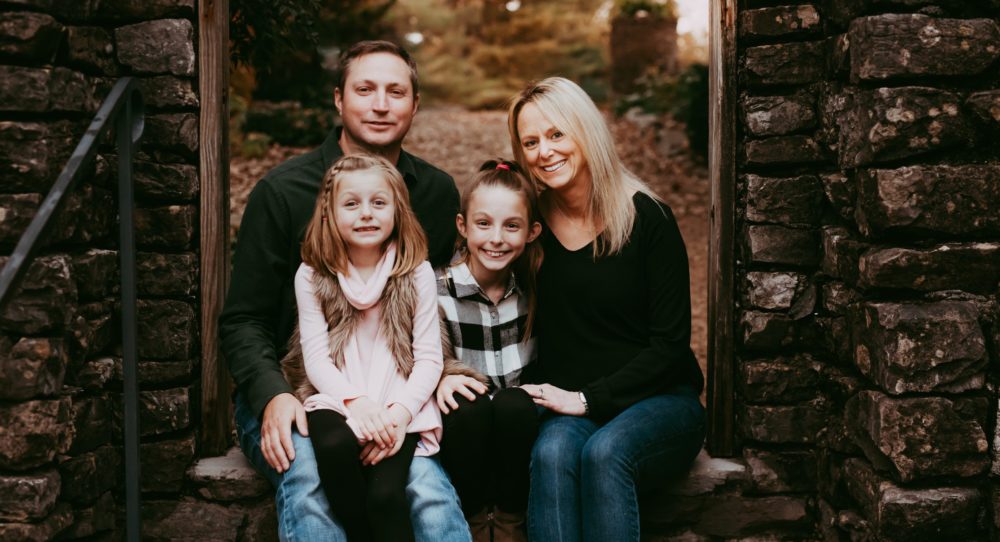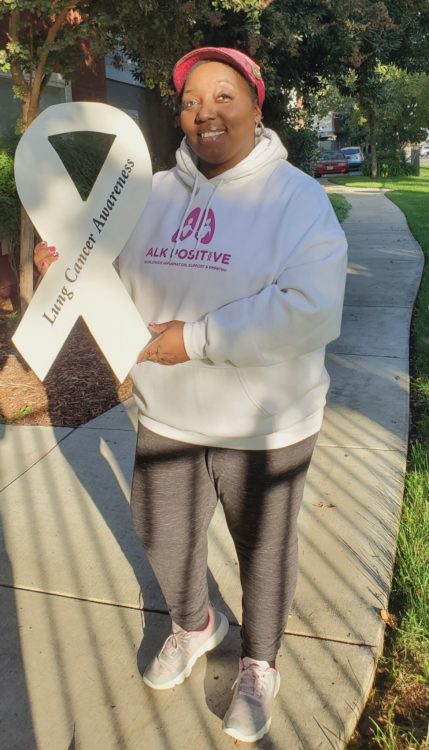
Amanda Nerstad, SPACEWALK participant, with family
By Daniel A. Saez, MSc, Treatment and Trials Navigator, GO2 for Lung Cancer
One of the biggest concerns within the mutation positive non-small cell lung cancer (NSCLC) community is the concept of acquired resistance to targeted therapies. Acquired resistance is when the drug a patient is taking stops working because the cancer has new changes called resistance mutations. Resistance mutations have been studied in some populations with mutation positive NSCLC such as those that are EGFR positive.
In 2019, our research partner the Addario Lung Cancer Medical Institute (ALCMI) launched the SPACEWALK study with academic and industry partners, to help identify possible resistance mutations to new drugs in patients with ALK positive NSCLC. SPACEWALK hopes to better understand what these resistance mutations could be and how that might affect future lines of treatment for these patients.
Remote Consent for SPACEWALK

Shyreece Pompey, SPACEWALK participant
SPACEWALK is a novel study taking advantage of a process called remote consent. Remote consent allows patients anywhere in the country to enroll in the study by agreeing to do so virtually. Patients who agree to be part of SPACEWALK continue to be seen by their local oncologist and do not have to travel to any trial sites. Patients that meet the requirements of the study and are accepted into it receive a free kit to provide a blood sample for next generation sequencing (NGS), this can be done by having blood drawn in their own home through “mobile phlebotomy.” NGS is a state-of-the-art comprehensive biomarker test which allows doctors and researchers to see which genetic change in the cancer might be responsible for the resistance mutation. SPACEWALK’s goal is to gather enough information about ALK resistance mutations to better understand the biology behind them and shed light on how they affect future lines of treatment. This study also seeks to determine the feasibility of remote consent studies to broaden access to trials like it.
Mechanisms for Resistance Mutations
In a recent publication, ALCMI and its study partners were able to highlight preliminary results from the study and identify key things to watch for as the study continues. Researchers found three different mechanisms for resistance mutations: on target, off target, and a combination of both on and off target mutations. An on target mutation means that the original treatment stopped working because of a new change in ALK that might affect how the original treatment works. An off target mutation means that the original treatment stopped working because of a change in a new gene other than ALK which could now be influencing the cancer. In the case of an off target mutation, the original ALK change could still be there. When the original treatment stops working and there are both new changes in ALK and changes in a new gene it is the third mechanism for resistance mutations, a combination of both on and off target mutations.
It is important to identify these different mechanisms because it helps researchers and doctors develop strategies to deal with possible resistance mutations. Additionally, after researchers complete documenting the results of biomarker tests for patients in the trial, those same results are sent to the patient and their oncologist for use in deciding the next line of treatment.
If you are ALK+, take steps to enroll in the study online or by calling 1-844-44SPACE.

Leave A Comment